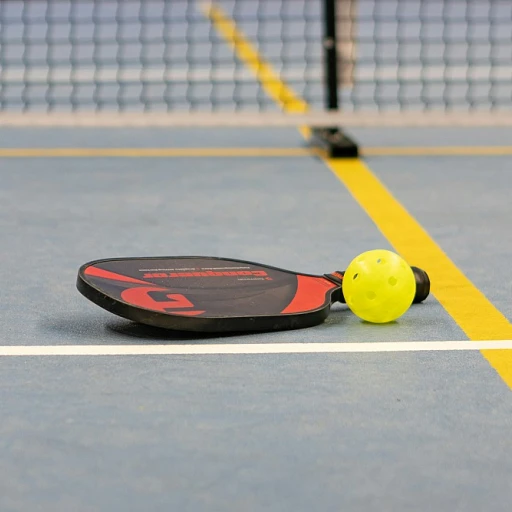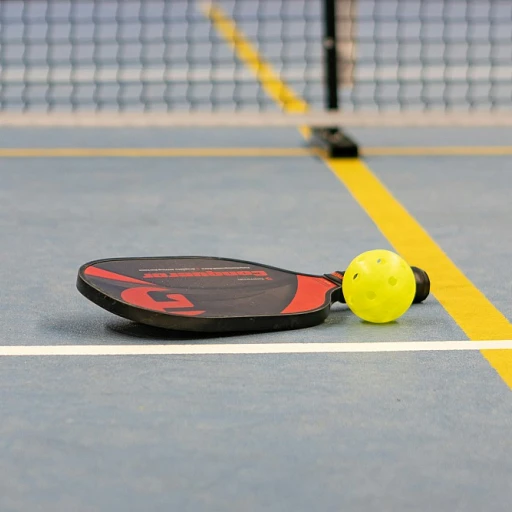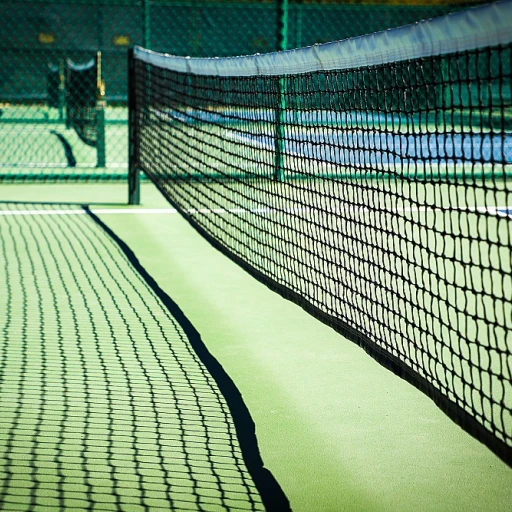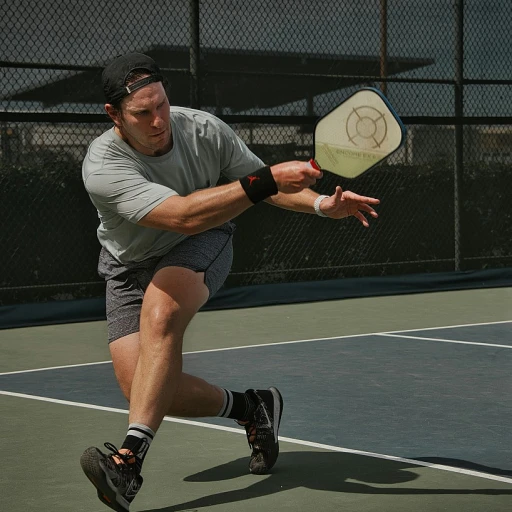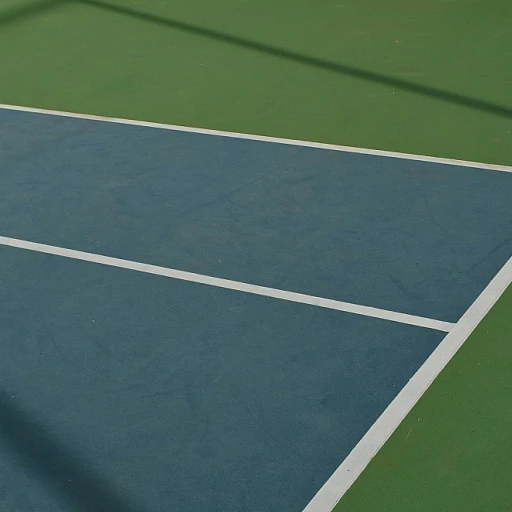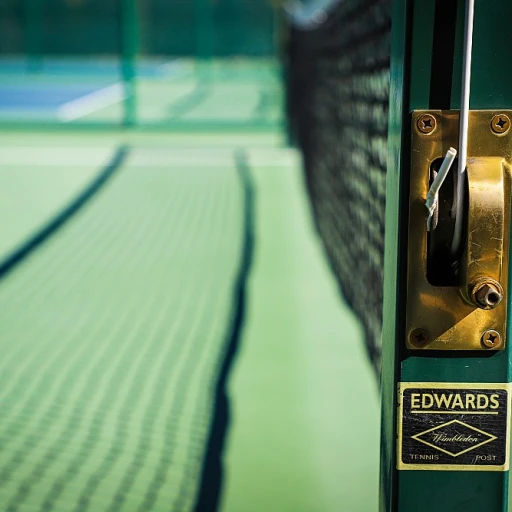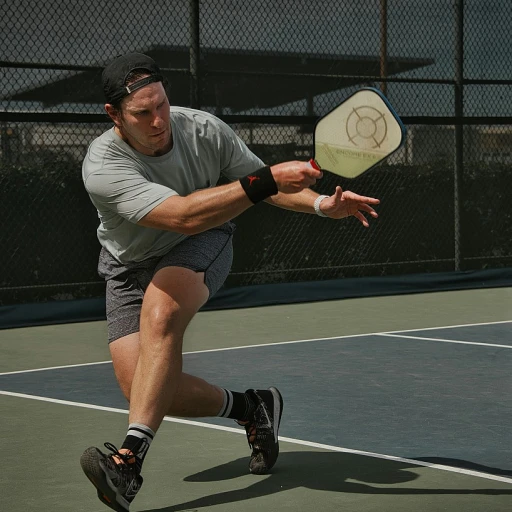
Initial Investment Requirements
Financial Foundation of Your Pickleball Franchise
Embarking on the journey of owning a pickleball franchise opens up a realm of possibilities within one of the fastest growing sports. However, it's crucial to grasp the initial financial commitments to ensure a solid foundation. Initial investment requirements vary depending on numerous factors, including the franchise model, location, and scale of the pickleball club. Investing in a pickleball business entails careful consideration of several key expenses:- Franchise Fee: Each franchise, such as Pickleball Kingdom or Ace Pickleball, demands a franchise fee, a part of the upfront cost. This fee grants you the rights to operate under the established brand, with perks like marketing and operational support.
- Real Estate and Court Construction: Securing the right location is vital, as well as the subsequent costs tied to establishing courts, be it for indoor pickleball or outdoor venues. Consider both venue size and location appeal, as these factor heavily into your facility's draw and revenue potential.
- Equipment and Facility Setup: From acquiring pickle pads to the essentials of outfitting your venue to meet player needs, these initial expenditures can significantly impact your overall investment total.
- Training and Staffing: A well-informed team is essential. Franchises typically provide training programs, ensuring your team is well-versed in the business model and equipped to support players, from dill dinkers to competitive picklers.
Ongoing Operational Expenses
Monthly Operations: Keeping the Pickleball Franchise Running
Once the initial investment for a pickleball franchise is made, a new set of financial considerations emerge in the form of ongoing operational expenses. These costs are crucial to maintaining a smoothly functioning business model and ensuring the support and satisfaction of your players in this rapidly growing sport.
A significant part of these expenses will include facility-related costs. Leasing or maintaining a real estate location for your pickleball club can account for a considerable amount of your monthly budget. Whether outdoor courts or indoor pickleball settings, ensuring quality conditions will need regular maintenance and potential upgrades.
Staffing is another major operational cost. Hiring experienced trainers and maintaining an administrative team is essential for offering a top-tier experience to your members. This includes managing employees' salaries, training programs, and any additional costs for upskilling or certification that might align with the quality standards within the pickleball kingdom.
Don't overlook marketing efforts. To keep new players joining and ensure continued business growth, investing in marketing is crucial. This encompasses everything from local advertising to participating in regional sports events, and establishing a strong online presence to capture the public's attention about your pickleball franchise opportunities.
Beyond these fundamental expenses, franchise fees imposed by the parent franchise company are mandatory. These fees contribute to ongoing support and resources such as national marketing campaigns, research and development of new offerings, and access to the latest training materials and business insights in the pickleball industry.
Ultimately, understanding these ongoing operational costs is essential as you navigate the exciting world of pickleball franchises. For further details, explore various factors affecting the pickleball business landscape in this insightful resource.
Revenue Streams and Profit Potential
Unlocking Revenue Potential in Pickleball Franchises
Starting a pickleball franchise offers a dynamic mix of revenue streams and profit potential, providing a solid business opportunity. As an owner, your income sources can be diverse, encompassing memberships, facility rentals, and merchandise sales. Membership packages tailored to different levels of players—such as recreational dinkers to competitive athletes—offer a steady flow of income. With the growing popularity of the sport, clubs can capitalize on this by offering tiered memberships that come with exclusive benefits like private court access at your ace pickleball club or personalized training with experienced coaches. Franchise locations like indoor pickleball courts cater to players during all seasons, ensuring year-round patronage. Hosting pickleball tournaments, clinics, and events further enhances revenue. Collaborating with local businesses for events can amplify marketing efforts and draw crowds. Revenue from merchandise sales should not be overlooked, as branded gear from rackets to apparel showcases your club's image. Partner with well-known brands in the pickleball kingdom to attract buyers looking for quality equipment. Facility rentals for events and leagues are another reliable income stream. Many clubs, like the pickleball club and pickleball kingdom, succeed by renting courts to local groups and organizations. Franchise owners should consider backyard sports setups, encouraging private hosting for adults and kids alike. Being proactive about maintenance and real estate management helps to optimize operations. Profits are reinvested into franchise disclosure and the pickle pad environment, maintaining a modern and appealing site for your picklerage community. For more tips on managing operational expenses effectively while boosting your pickleball business's profit potential, visit this comprehensive guide on unlocking savings with pickleball central promo codes.Location and Market Considerations
Choosing and Securing Your Location
When considering venturing into a pickleball franchise, the choice and treatment of location can be pivotal. An ideal spot not only plays a significant role in attracting players but also can impact the overall success of your business model. Here are some pivotal considerations:- Identify Optimal Areas: Consider areas where pickleball is already popular or is gaining traction. Urban centers are buzzing with health clubs and people eager to embrace the Pickleball Kingdom phenomenon. Suburban spots, on the other hand, are often goldmines for attracting backyard sports lovers and clubs catering to families.
- Real Estate Considerations: Leasing or buying property for indoor pickleball can be an investment. A comprehensive assessment of real estate options is crucial. Franchises need to weigh up costs and benefits—whether retrofitting existing sports venues into pickle courts or setting up fresh courts like Dill Dinkers.
- Analyzing Market Demand: Before you settle on a particular area, examining the demographic interest in pickleball is key. New locations should cater to both seasoned players and beginners. Using market research, franchises can gauge where potential players or dinkers frequent.
- Facility Amenities and Accessibility: Ensure the chosen location comes with ample parking space and is accessible to comers via public transport, making it easy for players and clubs to come together. Consider offering amenities that complement the play experience, such as a pickle pad for social mingling or health-focused options like a juice bar.
- Marketing and Community Engagement: A strong community presence can make or break your location. Whether in metropolitan spots or quiet suburbs, forming local partnerships can fuel growth. Franchises like Pickleball Kingdom or Ace Pickleball capitalize on strong marketing campaigns aligned with their location dynamics.
Legal and Regulatory Aspects
Understanding the Legal Framework
Navigating the legal and regulatory aspects is crucial for anyone considering a pickleball franchise. Due diligence in these areas helps ensure compliance and smooth operations for your business club.- Franchise Disclosure and Agreement: An essential step involves understanding the franchise disclosure document. It details rights, responsibilities, and various fees like the franchise fee, which are integral to your pickleball business model.
- Real Estate Considerations: Leasing or purchasing property for your courts falls under legal scrutiny. Whether it's establishing outdoor or indoor pickleball locations, consulting with real estate professionals and legal experts is key.
- Business Licenses and Permits: Operating a pickleball club or pickle pad requires appropriate business licenses. This includes permits specific to sports venues and ensuring the site meets community and regulatory standards.
- Liability and Compliance: As franchise owners, ensuring player safety is paramount. This involves liability insurance and compliance with safety regulations, enhancing trust and credibility for your club.
Challenges and Opportunities in the Pickleball Industry
Strategies for Thriving in a Competitive Sport
Entering the pickleball business means facing both obstacles and promising prospects. As an aspiring franchise owner, understanding these dynamics can position you favorably in the rapidly expanding world of pickleball, which is among the fastest growing sports worldwide.- Understanding Market Trends: The rise of pickleball is driven by both seasoned players and newcomers searching for accessible recreational activities. Establishing a pickleball franchise requires keeping a pulse on trends, from Pickleball Kingdom to Dill Dinkers, ensuring you meet the needs of a diverse group of players.
- Overcoming Challenges: Initial investment and franchise fees can be significant hurdles. It's crucial to be aware of ongoing operational expenses, such as real estate for indoor pickleball facilities, court maintenance, and staff training. A comprehensive franchise disclosure document can illuminate these aspects for potential franchise owners.
- Capitalizing on Opportunities: A well-run pickleball club, offering specialized services like Pickle Pad or innovative backyard sports options, can generate substantial revenue streams. clubs that provide adaptable business models, such as those seen in Ace Pickleball or the Picklerage trend, have a competitive edge.
- Embracing Marketing and Support: Efficient marketing strategies and gathering a dedicated team will foster a supportive community, which is essential for player retention. Franchise opportunities that emphasize "kingdom support" or niche programs like those from Crush Yard can significantly enhance your brand's resonance with players.
- Navigating Legalities: Compliance with local legal and regulatory requirements is non-negotiable. Ensuring your franchise operations align with legal standards will mitigate risks and help maintain a stable business environment.
- Networking and Collaborations: Networking with other franchise owners and participating in industry events can provide insights and ideas, propelling your business forward. Collaborating with successful franchises can offer invaluable strategic support.


